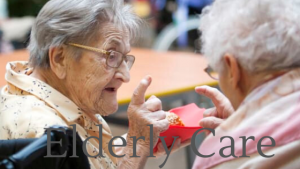Technology has helped advance our lifestyles from home appliances to televisions and smart devices. As life becomes busier humans rely on technology more. We are now more dependent on mobile applications for our needs. You can get global news at your fingertip and order food online with just a press of a button. But that is not all. You can use mobile apps to listen to music, watch movies, book a cab, and a host of other regular services.
The health care sector is also using mobile apps to offer better treatment services and facilitate communications between patients and care providers. Dedicating a significant amount of time to take care of the elderly is a challenge that most families face. This is where professional caregivers come in handy. They provide nursing, therapy and caretaking services to the elderly. They also assist them with daily activities.
But here is the crucial point. Apps and software are rapidly making it easier for home care agencies to take care of the elderly. But how do software and apps help in elderly care?
Benefits of Apps for Home Care Agencies
1. Enhance Efficiency
Mobile apps come with a GPS feature that shows the patient location. It helps the caregiver to determine how easily they can take to visit a patient. The elderly care agency can also use GPS tracking to determine how much the caregiver spends with the patients and when someone is on a break. The apps and software help the agencies track working hours of caregivers and plan their visits. Besides, the apps help to store information on every visit and document the previous visits’ information.
2. Increase Effective Communication
The aim of the apps in managing elder care is to stay connected. The mobile apps help in making communication between the caregivers and patients seamless. The adult day care software is integrated with features that streamline real-time communication on care plan and progress. They also facilitate communication on issues affecting both the caregiver and patients. They can ask questions and keep both sides up to date with any development. Some apps come with points of advice to give solutions to routine issues in the caregiving industry.
3. Time and Cost Saving
Caregiving agencies use mobile apps to keep their clients updated. They provide billing, route information, time tracking and schedules. Consequently, this helps to provide high-quality services. Some apps come with predefined checklists that help caretakers to follow set plans for patients. Caretakers can also use apps to schedule travel plans on their smart devices.
4. Health Monitoring
Elderly require quick diagnosis and continuous supervision. Caregivers can use the apps for a medical diagnostic to improve patient monitoring. The software and apps use artificial intelligence to detect a change in behaviour and activity in the elderly and hence help in early detection of health issues. Also, they enhance care coordination and adherence to medication for the elderly. The smart devices also come with fall detection feature. Falling can cause numerous medical conditions. The apps enable caregivers to attend to patients quickly to avoid these problems.
5. Patients Satisfaction
A mobile app enables the seniors to control room temperature at the press of the fingertips. They can raise or lower the temperature if the room is too cold and vice versa. Enabling the patients to control their environmental condition improves their overall satisfaction and comfort. The mobile apps can also replace the conversational nurse call button.
Conclusion
Apps and software improve patient satisfaction and quality of services. They can also digitally control the room environment and reduced risk of falls for people elderly with mobility issues. The bottom line is that apps and software are great technologies in managing elderly care.











